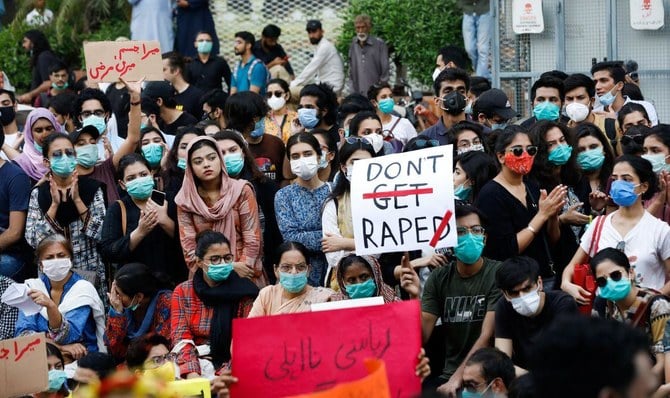
PESHAWAR: A Pakistan court liberated an attacker after he wedded his casualty in a settlement facilitated by a committee of seniors in the northwest of the country, his legal counselor said Wednesday.
The choice has shocked freedoms activists, who say it legitimizes sexual brutality against ladies in a nation where a greater part of assault goes unreported.
Dawlat Khan, 25, was condemned in May to life detainment by a lower court in Buner locale of Khyber Pakhtunkhwa territory for assaulting a hard of hearing lady.
He was let out of jail on Monday after the Peshawar High Court acknowledged an out-of-court settlement concurred by the assault survivor’s loved ones.
“The attacker and the casualty are from a similar more distant family,” Amjad Ali, Khan’s legal counselor, told AFP.
“The two families have fixed up after an understanding was reached with the assistance of neighborhood jirga (customary board),” he added.
Khan was captured after his unmarried casualty conveyed a child recently, and a paternity test demonstrated he was the youngster’s natural dad.
Assault is famously challenging to arraign in Pakistan, where ladies are much of the time treated as peasants.
As indicated by the Asma Jahangir Lawful Guide Cell — a gathering giving legitimate help to weak ladies — the conviction rate is lower than three percent of cases that go to preliminary.
Hardly any cases are accounted for due to the related social disgrace, while slips during examinations, trashy legal practices, and out-of-court settlements additionally contribute toward wretched conviction rates.
“This is successfully the court’s endorsement of assault and help of attackers and assault mindset,” Imaan Zainab Mazari-Hazir, a legal counselor and common freedoms lobbyist, said of the Peshawar court choice.
“It is contrary to the essential standards of equity and the rule that everyone must follow which doesn’t perceive such a plan,”. The Common liberties Commission of Pakistan said it was “dismayed” by the decision.
“Assault is a non-compoundable offense that can’t be settled through a weak ‘compromise’ marriage,” the gathering tweeted.
In provincial Pakistan, town boards known as jirgas or panchayats are framed of neighborhood elderly folks who sidestep the equity framework, in spite of the fact that their choices have no lawful worth.
